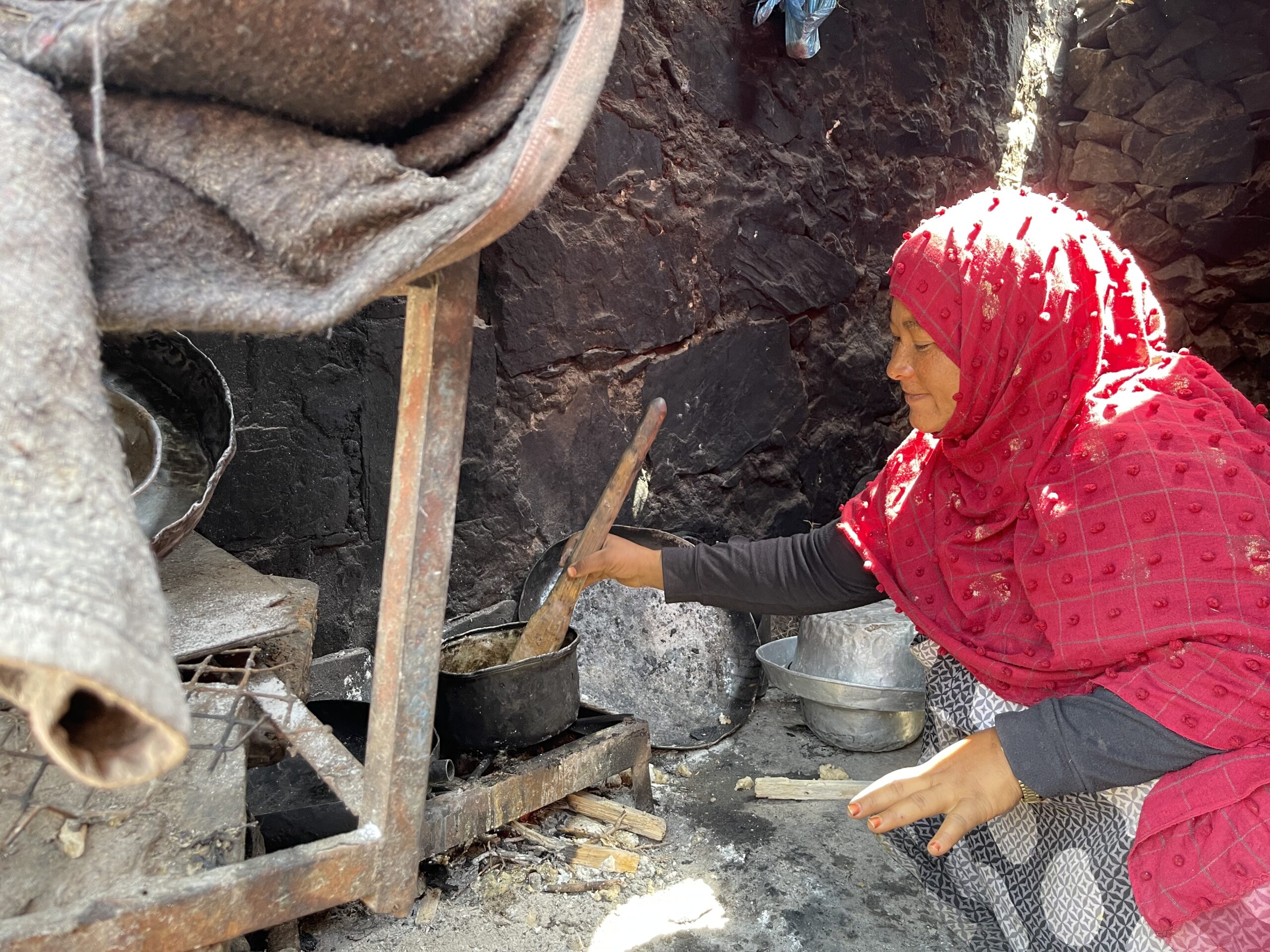After years of conflict, Yemen faces the worst humanitarian crisis in the world. The collapse of the local currency doubled the suffering of residents which causes unreasonable rise in food prices. Since 2015, the economy has shrunk by half, and more than 80 per cent of Yemenis now live below the poverty line.
Amal is a 33-year-old displaced mother of eight children from Taiz governorate in southwestern Yemen. She and her family lived in Shara’b distict of Taiz governorate. When the war began, they were forced to flee looking for safety, and they ran away on foot, with only the clothes they had on. They don’t have any transportation means of their own and can’t afford paying the fees of a private one. “My life was quiet, simple and peaceful. I had my own humble home and we were so comfortable. My husband used to work on daily wages and was able to provide the family with daily necessities,” says Amal as she reminisces about her life prior to the war.
“Our life changed completely when the war reached our district- Shara’b. I and my family were forced to flee due to bombing. It was unwise to stay any longer,” says Amal sadly. She and her family fled to her husband’s village, Qadas, a sub-district in Taiz, but they couldn’t live there because her husband couldn’t secure any source of income for his family and his health condition worsened more as he suffers from spinal injury. So they had to face the fleeing experience again and headed to one of the camps in Taiz governorate.
More than 70 per cent of internally displaced persons (IDPs) in Yemen are women and children, and approximately 30 per cent of displaced households are now headed by females, compared to 9 per cent before the conflict escalated in 2015. Although the majority of IDPs are hosted within communities, nearly one million IDPs are living in 1,589 camps and informal settlements. Food security assessments confirm that IDP households face higher food insecurity levels compared to non-displaced households.
“Since we arrived to the camp, we haven’t had enough food and clean water. We used to always sleep with empty stomachs. And we used to drink the rainwater, which was one of the main causes of viruses such as cholera and many other preventable diseases spreading,” Amal says.
With no proper education and vocational training, Amal finds herself responsible for her family. She works as a cleaner and gets $10 a month which means she can’t provide all essentials to her family. “We can no longer buy eggs and cheese. It is a kind of luxury for us to eat more than one type of food per day,” says Amal.
Displaced families are taking multiple paths to survive. Children in displaced families are forced to leave school and beg to provide food for their families. Some families resort to selling their hard-to-earn items to pay for their daily food. Other families are also forced to marry off their daughters before reaching the legal age for marriage. “My 14-year-old daughter got married because it is difficult for me to provide essentials to all my children,” Amal states.
CARE intervened in Taiz governorate with its emergency voucher and general food assistance project to help food-insecure families like Amal’s.
Through the project, residents in Taiz governorate receive monthly food basket. “We felt hopeful when we received the food items. This is our only way to survive. I hope this project continues so my children will not be forced to beg,” Amal concludes.


